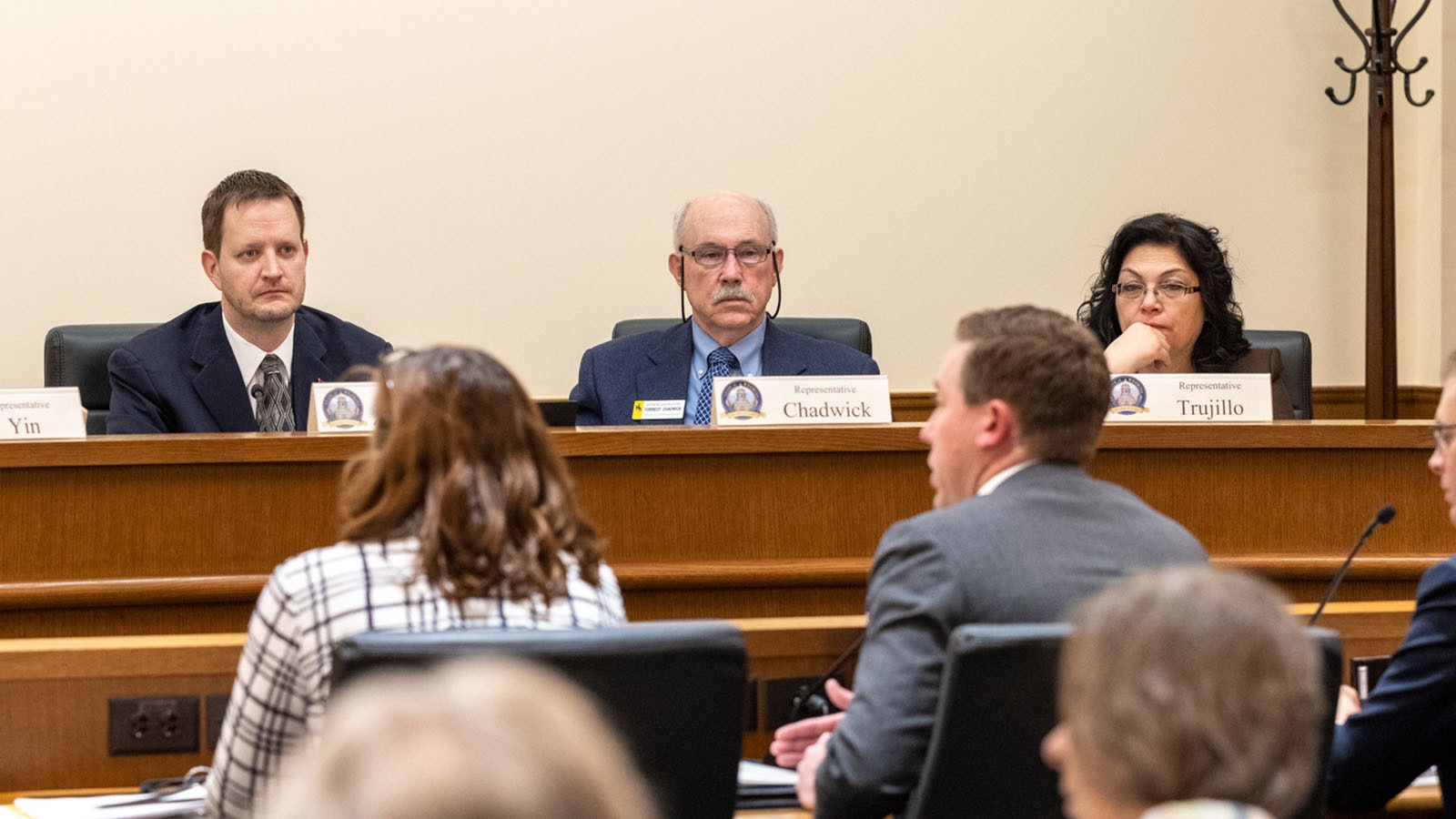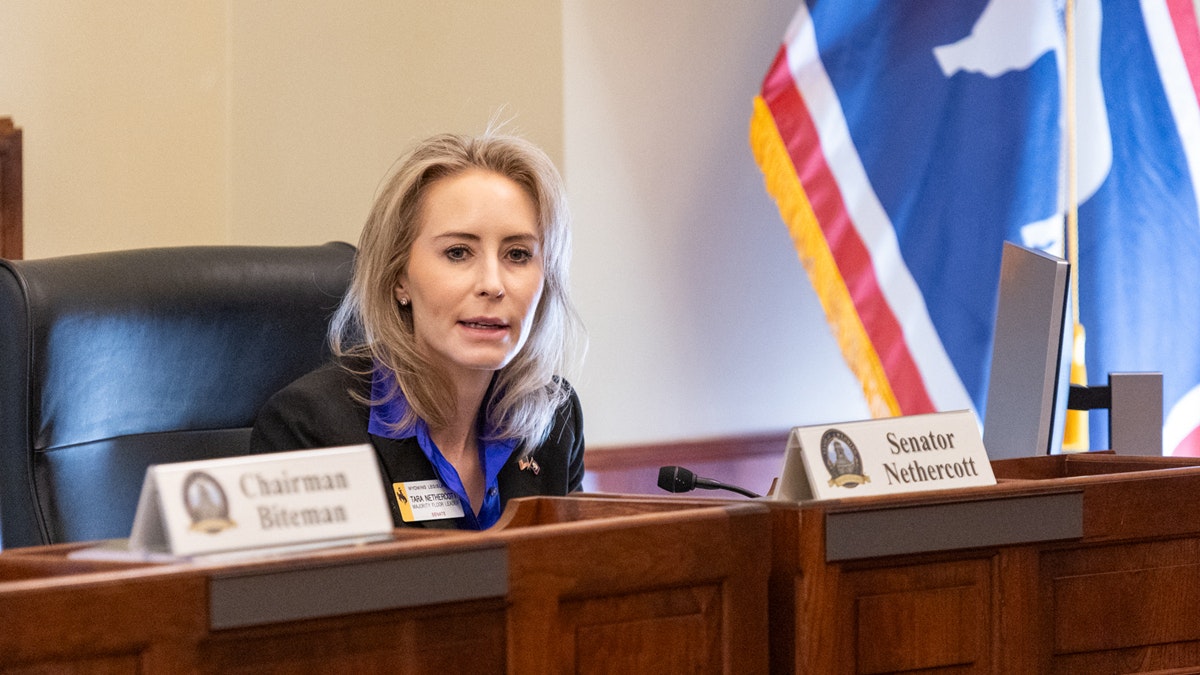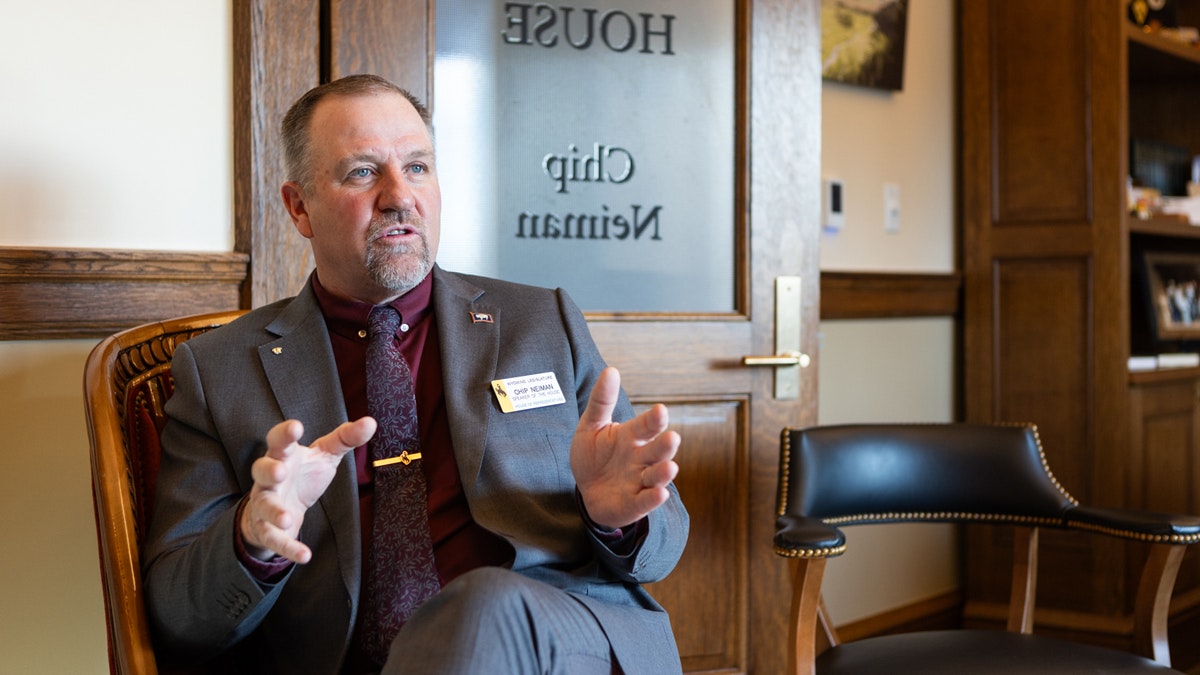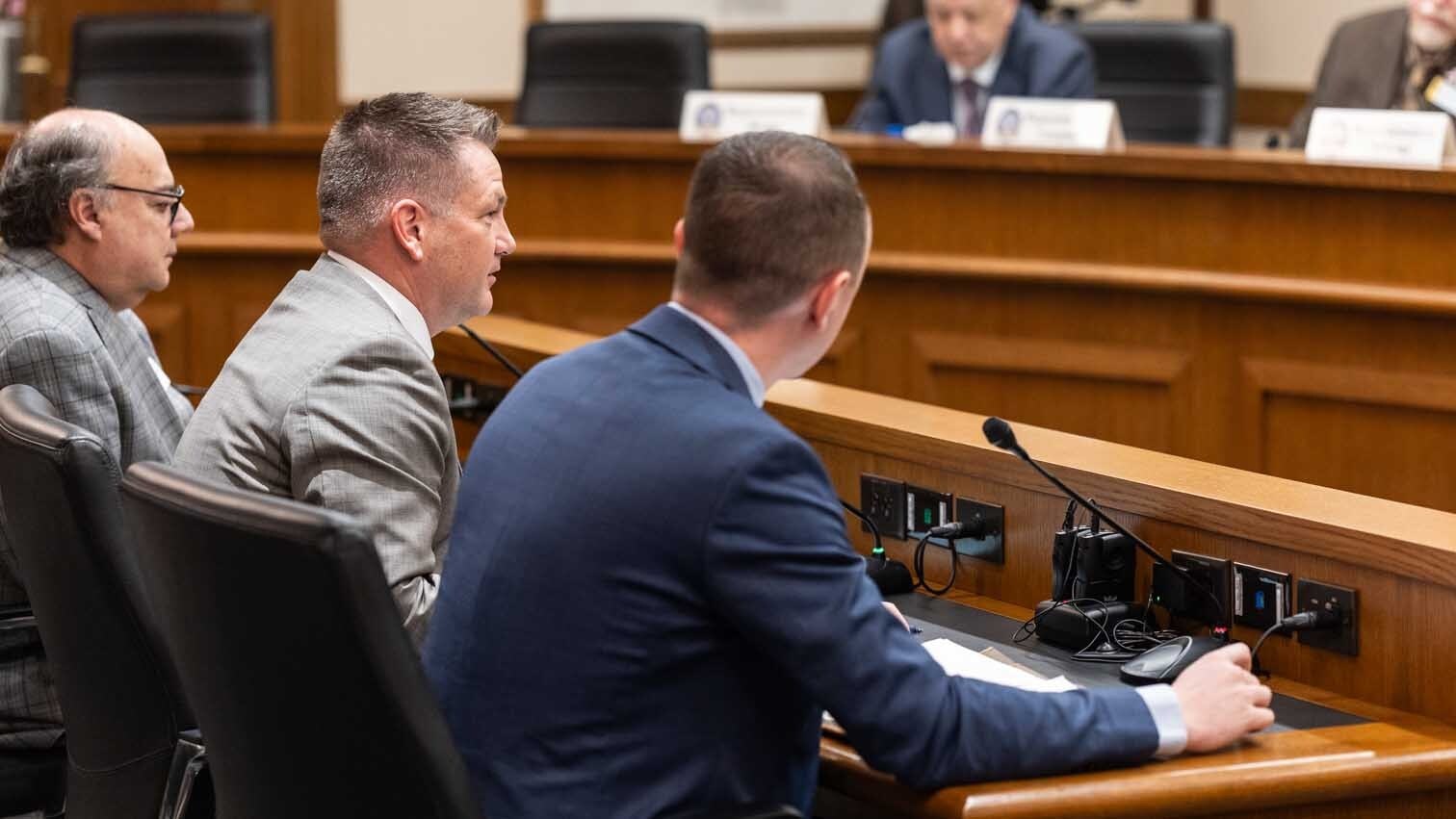Extending postpartum Medicaid coverage from 60 days to 12 months is a step closer to happening in Wyoming.
House Bill 4 passed out of the Legislature’s House Labor, Health and Social Services Committee on a 5-4 vote Friday and moves to the House of Representatives floor for discussion.
The crux of the at times-contentious committee debate was about the value of providing care for new mothers versus the possibility of increased federal government control.
State Rep. Sarah Penn, R-Riverton, a nurse practitioner, voted against the bill, but admitted it is well-intentioned. Her biggest problem with the legislation is ceding state control of the program.
State vs. Federal Control
Since the beginning of the COVID-19 pandemic, Medicaid programs have been prevented from dropping any enrolled members during the federal public health emergency.
In response to the pandemic, the 2020 Families First Coronavirus Response Act temporarily extended postpartum medical benefits to mothers for one year. In Wyoming, mothers were previously only covered for 60 days.
Enrollment increased from 1,500 to 4,200 members in Wyoming after the extension.
“You can see what can happen with the potential of having those federal ties. We no longer have say in how we run our state and how we have our health care,” Penn said. “The more that we look to the federal government for a solution to a problem, the less opportunity we have to let the free market to step up to address that problem.”
Penn mentioned studies how extending postpartum Medicaid to Wyoming mothers show minimal results.
Missing Out On A Resource
Freshman legislator Rep. Forrest Chadwick, R-Casper, supports the bill, as does Gov. Matt Gordon.
“What the providers have told us, and their willingness to take on this financial burden, I find that compelling,” he said. “That’s their job, to help people. But I find that stance by the very medical community (is) … they’re all in line. They all believe this is necessary.”
About a dozen members of the Cowboy State health care community spoke in favor of the bill over the course of two committee meetings this week.
The original bill requested $3.8 million in state money annually, but this was halved to $1.9 million, matched dollar-for-dollar by federal funding.
“I have a little bit of a hiccup – not that I like spending state money – throwing a low-dollar amount in here,” Rep, Ben Hornok, R-Cheyenne said, advocating for the original amount despite later voting against the bill.
He said his sister has been in the hospital for a post-pregnancy injury and suffered greatly.
Stefan Johansson, director of the Wyoming Department of Health, favors cutting the funding to $1.9 million, as does Rep. Mike Yin, D-Jackson. He pointed out that Wyoming is obligated cover all Medicaid patients no matter where the money comes from.
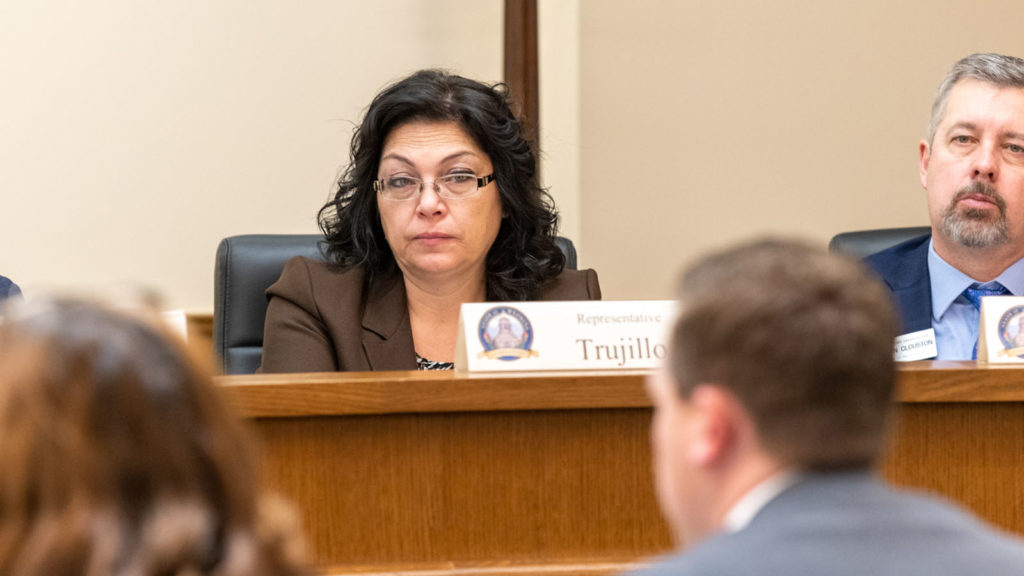
Existing Program
Rep. Tamara Trujillo, R-Cheyenne, brought up the Wyoming Family Planning Waiver Program, a postpartum program for women, in her opposition to the bill.
Services under waiver program include education about reproductive health and methods of birth control, initial physical exam and health history, contraceptive management and devices, annual follow up exams, health-related laboratory procedures and diagnostic tests, sterilization services and related services for birth control purposes.
“With this program in Wyoming and the title of ‘Medicaid 12 Month Postpartum Coverage,’ I’m going to have to be a no,” she said.
But Josh Hannes of the Wyoming Hospital Association said the waiver program is not comprehensive coverage.
“It’s a limited number of services specific to family planning,” he said.
Wyoming mothers can qualify for the waiver if they have an income less than or equal to 159% of the federal poverty level. It lasts from the end of the 60-day Medicaid period as long as needs continue, or until age 44.
Hannes said neighboring states aren’t using similar waiver programs because their Medicaid has already been extended.
Pro-life?
Dr. Rene Hinkle, a physician at Cheyenne Women’s Center, said future unintended pregnancies and abortions could be avoided by extending the postpartum coverage.
Rep. Jeanette Ward, R-Casper, said a pro-life justification should not be used to expand entitlement programs.
Ward withdrew a question where she asked Hinkle if she performs abortions and later referenced a scripture in her defense of the argument.
Earlier in the week, Ward questioned the governor’s pro-life stance when discussing HB 4.
Ward said the pandemic, “which is now over,” is being used as a justification for expanding Medicaid.
“An entitlement program, which is not the role of government, once it is expanded is nearly never contracted,” she said.
‘Fiery Pit Of Socialism’
Deacon Mike Leman of the Diocese of Cheyenne urged the committee to pass the bill while trying to bridge a gap between party politics.
He implored pro-choice supporters to consider the negatives of abortion, while asking those more conservative to recognize “that not every government program is an inevitable slide into the fiery pit of Socialism.”
“We’re talking about a segment of the population that qualifies for Medicaid coverage while pregnant,” he said. “Then, when the mother and child are still extremely vulnerable, they no longer qualify.”
But Leman said the best way to consider the welfare of mother and child is through the fabric of family life.
Government vs. Families
Penn questioned Leman whether it is the role of the government to ensure the welfare of families.
“That’s the state’s task with justice,” he responded. “In the end, the question of justice is an ethical one – what’s right and what’s wrong.”
Hinkle mentioned how they often don’t see mothers come back for visits six weeks after giving birth. This sometimes results in patients not receiving birth control, which can allow them to become pregnant within the next year.
“That’s something that we as providers feel is unsafe,” she said. “We like to wait at least a year before someone gets pregnant again.”
Preventative Measure
Penn asked Hinkle about the likelihood of postpartum complications and illnesses.
“Many of these things are rare,” Hinkle said. “But they’re catastrophic when they do occur.”
Erin McKinney, a clinical director at Cheyenne Regional Medical Center, said two-thirds of postpartum deaths are preventable.
Hinkle said she had a patient who came in with stage 4 breast cancer eight months after giving birth that was not spotted in previous visits.
In 2020, Cheyenne Regional Medical Center delivered 1,019 babies. Based on national averages, Wyoming loses two to three mothers a year who die from pregnancy complications.
Rebekah Smith Hazelton, a staff member with the Wyoming Women’s Foundation, said one in five mothers lose insurance after giving birth.
McKinney also said domestic violence scenarios could be more identifiable with the extended coverage.
By The Numbers
McKinney said at least 10% of mothers experience postpartum depression, but Hinkle said only half of these patients need mental health services.
Hollis Hackman, legislative chair for the Wyoming Psychological Associaton, said 20% of maternal deaths are from suicide.
McKinney said if a woman receives substance treatment in the 60 days of Medicaid coverage, her chance of relapsing is significantly higher after the coverage expires.
Hinkle said her staff charges a third of its normal costs for Medicaid patients, which make up 30% of patients. Medicaid is a service many have said doesn’t properly reimburse for service providers.
“We are burdened, but it’s not overly,” she said.
If extended, the Medicaid coverage would not include covering day care services.
Penn said women are strong and if they are always provided a safety net, they will become reliant on it.
Hornok voted against HB 4, saying there has to be a limit to pandemic-related reactions.
“I don’t think the pandemic world is the world that I want to keep continue living in,” he said.

